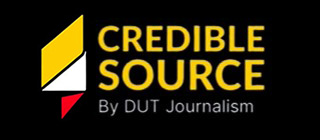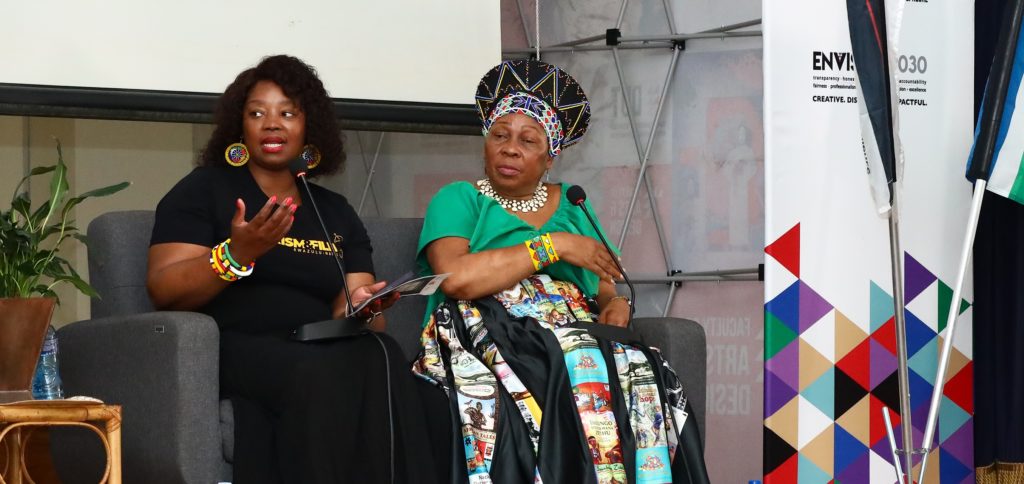By Haylee Maduray
It was a feast of dance, song, conversation in the packed Arthur Smith Hall in the Durban University of Technology’s City Campus during the Faculty of Art & Design’s International Mother Language Day Celebration.
The university partnered with The Department of Sports, Arts and Culture as well as Gcinamasiko Arts and Heritage Trust.
Speaking at the event, Faculty of Art and Design Interim Dean Prof. Jean Baxen said celebrating such occasions is important as South Africa’s past excluded home languages of the majority. “Mother languages would not have been considered or uttered in this space,” she told the packed hall.
The proceedings had the inclusion of sign language with two interpreters signing throughout the five hour proceedings of the day. “The sign language interpreters are testament to our commitment to inclusion,” mentioned Baxen.
There was a panel discussion with Dr Gcina Mhlophe who is the founder of Gcinamasiko, Ms. Pinky Radebe who is the Communications Head at KwaZulu-Natal Tourism & Film Authority and Prof. Nobuhle Hlongwa who is the Dead and Head of the Arts School at the University of KwaZulu-Natal. The panel discussed whether there’s been growth of usage of mother tongue languages in South Africa’s academic spaces, the arts and society at large in the 25 years of the existence of International Mother Language Day. They largely feel there’s growth, but it isn’t enough.
“Using our languages is quite important in the film space as we’ve seen films like Tsotsi winning Oscars with Yesterday being nominated,” explained Radebe.
Prof. Hlongwa spoke about the power of collaboration as she mentioned that UKZN, DUT and the University of Zululand have produced the first isiZulu academic journal.
The keynote address was given by Prof. Mowabisi Ralarala who is the Deputy Vice-Chancellor: Academic of the University of the Western Cape. He urged universities to be intentional about formulating their inclusive language policies and take the task with the seriousness it deserves.
“The institution will have to look at its commitment in terms of resource provision and the attempt in which such resources are used. They also have to look at the capacity. If the university doesn’t have the capacity to implement policy,” Ralarala said.
There were also visiting isiZulu students from China who are currently studying at DUT.
“Students from all around the world speak different mother language and I’m looking forward to experiencing those interesting cultural suggestions,” said Chinese student Lisa Zhu about her time in South Africa.
The following day offered a second leg of the event which was organised by Gcinamasiko in The Bluff.


